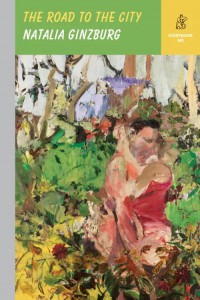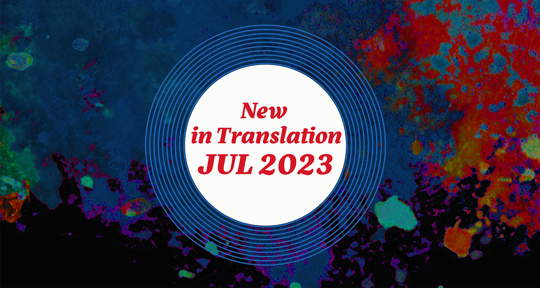This month, we’re excited to introduce two works that explore social intricacies from two respective angles: the familial and the technological. From the Italian, lauded modernist Natalian Ginzburg’s most recent English-language work plumbs into the combustive conflicts within a family unit to reveal the complex moralism within our most intimate relationships. From the Korean, science fiction author Djuna conjures a thrilling tale of how corporate politics and advancement colonises upon human identity. Read on to find out more!

The Road to the City by Natalia Ginzburg, translated from the Italian by Gini Alhadeff, New Directions, 2023
Review by Catherine Xinxin Yu, Assistant Director of Outreach
Seventeen-year-old Delia is a frivolous beauty with neither talent nor sense. Her hobby is to get dolled up in her blue dress, take the dusty road to the city, and stroll around, admiring its affluence. Seeking to escape from the drabness of her townish family, she thought a bright future had beamed on her when a rich doctor’s son began pursuing her, but little did she know that it was an abyss, instead, that beckoned.
The Road to the City is Italian novelist Natalia Ginzburg’s earliest published work, written in 1941 and published in 1942. At the time, she had been sent into internal exile to a village in Abruzzo for her husband’s anti-Fascist activities. Missing her home city of Turin while developing close ties to the locals in Abruzzo, she blended the places and people from memory and real life to craft this nuanced novella, with a snappy style that “[her] mother might like”.
Ginzburg has an incredible talent for depicting explosive clashes within families, integrating insight and humour into her narrative. English readers might already be familiar with her voice through Family Lexicon, her autobiographical novel published in 1963, and in The Road to the City, we see her burgeoning style with same pithy descriptions and wry comedy, surgically precise choice of scenes and voices, refrains of familial sayings as inside jokes and memory triggers, and nuanced character sketches that highlight their contradictions and moral ambiguity. But unlike Ginzburg’s own family, which is soldered with love and a common cause against fascism, The Road to the City traces how a family splinters into pieces from collective shame and spite.


